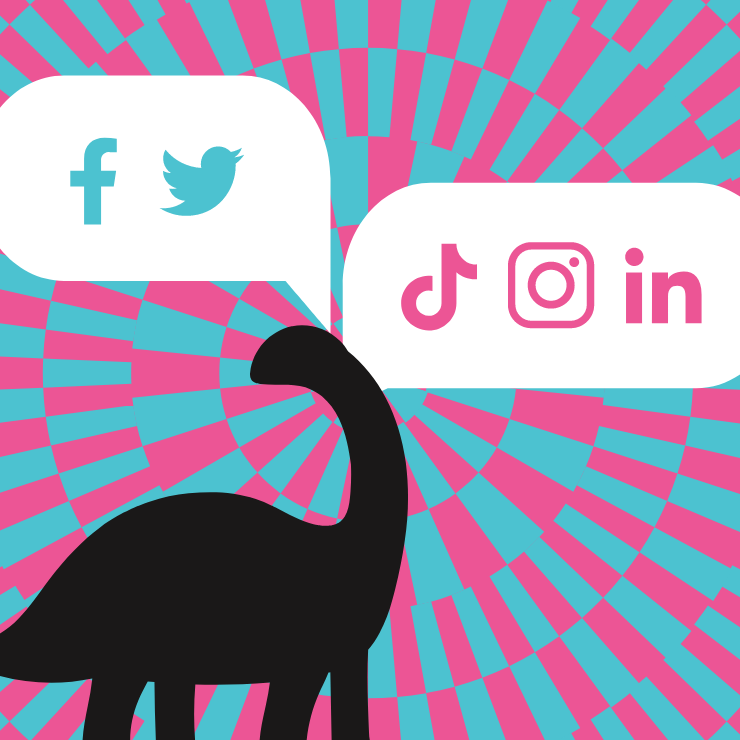What’s a content strategist, and why does your B2B campaign need one?

Legendary ad man David Ogilvy said, “I’d like to be remembered as a copywriter.” If he ever heard the term “content strategist,” he would probably have hated it.
I also proudly wore the “copywriter” title for most of my career — until a few years ago, when I was named a Senior Content Strategist at StudioNorth. While I do think it sounds a little formal, I agree that the new title makes sense, because there’s actually a real difference between the two roles.
Here’s why today’s B2B campaigns need a content strategist.
Strategy and content are two strands of the same rope.
In today’s B2B marketing environment, content and strategy are as tightly interwoven as two strands of the same rope.
StudioNorth content strategists don’t just write copy to flesh out the strategic bones of a campaign. We work closely with our marketing strategists and clients to create core content that speaks to the “why,” “what,” and “how” for every key element of a client’s offering.
The tool we use to make that happen is a messaging platform — a comprehensive document that unambiguously lays out a value proposition and the pillars that support it, along with short- and long-form verbiage that form the basis of all campaign communications.
These B2B messaging platforms are highly strategic, but they’re also packed with content that may find its way into any number of campaign elements.
Another area where strategy and content are inseparable is during branding or rebranding. We offer a four-step process that that builds consensus faster, delivers compelling results sooner, and costs significantly less to execute. And every one of those steps features lots of precisely honed content.
There’s no way to separate content and strategy at StudioNorth. Content strategists have to be skilled at both.
A content strategist is a subject matter expert.
Last year, a client asked me to speak at their annual industry event — not about what I do, but about what they do.
That’s how deeply content strategists need to understand their clients’ businesses.
You can’t write effectively for today’s B2B audiences without deep knowledge about the business in question. B2B marketing only succeeds when it connects with its audience and delivers an emotional impact. And emotional impact only happens when decision-makers see their own hopes, fears, big moments, and minor annoyances reflected in the content that reaches them.
In other words, when marketing makes them pause, laugh, groan, or mutter to themselves, it’s got a much better chance of motivating them. If your language isn’t their language, you’ll never keep their attention long enough to make an emotional impact.
Content strategists own the responsibility for making that connection. So, we have to read what our audiences read, watch what they watch, celebrate what they celebrate, fear what they fear.
That’s our job.
Content and strategy never stand still.
Back in the day, marketers launched a campaign like a 19th century ocean liner: Build it, celebrate, then watch it disappear over the horizon.
Today’s B2B marketing campaigns don’t launch. They infiltrate. StudioNorth’s campaigns for clients such as Lenovo and CDW seek to connect with decision-makers in so many different ways, we’ve raised campaign journey mapping to an art form.
All those different tactics don’t land at once — they’re strategically designed to connect with different segments of the audience at different points in a labyrinthine buyer’s journey. So, everything has to be written with an understanding of other assets the audience may (or may not) have seen and what actions they may (or may not) have taken.
Long story short, we’re writing from the earliest stages of campaign planning until the campaign has been live for months, with adjustments along the way based on results we analyze from day one.
The content isn’t static, because the strategy isn’t static.
B2B content strategy is ultimately about connecting with an audience wherever they are at any given moment. Copy without solid strategy won’t reach them. Strategy without great content won’t trigger their emotions.
That’s why today’s B2B marketing campaigns need more than a copywriter. They need a content strategist. Sorry, Mr. Ogilvy.


